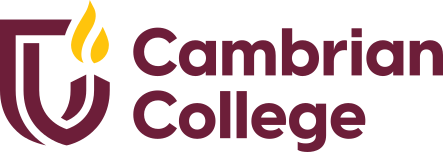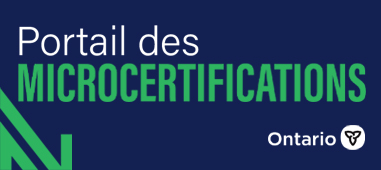What's Navigation?
As a navigator, you'll help people make sense of complex systems that can be confusing and frustrating. You'll work from a person-centred and strength-based lens to help people navigate health care, mental health, addictions, social welfare, law and justice, developmental and educational settings.
Program Delivery
2021-2022
This program will be delivered in the following terms:
Fall Term Start
SEMESTER 1: Fall 2021
SEMESTER 2: Winter 2022
SEMESTER 3: Spring 2022
Delivery Format
At Cambrian College, HyFlex delivery of courses and programs refers to student choice about how they experience lectures, content, and activities. In a HyFlex course, a student can choose to learn using a variety of delivery modes as follows:
Live, in-person - face-to-face classroom attendance occurs at the regularly scheduled time for lecture and activities
Live, virtual (synchronous) lecture - attendance occurs through use of a computer or mobile device and web conferencing (webcast) software during live lecture and discussion activities
Asynchronous review - students can review the recorded lecture (at a later time of their choosing after the lecture has been captured)
Fully online asynchronous participation - students choose to work independently of live lectures throughout the course*
Faculty members will provide a common Moodle course shell for all students (no matter what delivery mode a student selects).
HyFlex courses take place during regular Cambrian College terms (fall, winter, or summer). Students and faculty members in HyFlex courses are subject to the same Cambrian College academic policies, expectations, and deadlines, as all Cambrian College courses. Evaluation expectations and policies will be communicated by faculty members at the start of each course.
Part-Time Delivery
Students opting to study part-time will be provided with a possible pathway to complete the program while remaining part-time. Timelines for completion will extend beyond those indicated above.
For specific term start/end dates and other key dates/deadlines, please see the Academic Schedule on our website.
Program Overview
You'll learn how to...
Navigate complex systems
Conduct assessments
Create care plans
Conduct care team meetings
Create transition and discharge plans
Advocate for clients
Use motivational interviewing
Build your professional network
Practice ethical decision making
Help clients understand professional jargon
Provide both one-on-one and group support
Provide support to different populations (e.g. youth, adults, older adults)
Apply principles of person-centred and strength-based care
Recommend local and provincial resources
Practice self-care...and more!
Program Highlights
9 months (full-time pathway)
- Students have successfully completed the program full-time while working full-time
- There's also a part-time pathway (see further below)
You can choose to complete the program 100% online
- You can join class virtually in real-time or view the recording afterwards
- This is a great option if you don't live in Sudbury and/or if you're working
You will practice the skills you learn through role-plays and simulations (even online!)
You don't need to buy textbooks! (any textbooks can be accessed for free online)
You'll receive personalized, one-on-one support from the program coordinator
You can obtain optional certification in:
- Nonviolent Crisis Intervention Training
safeTALK
- Applied Suicide Intervention Skills Training
- Mental Health First Aid...all at a reduced cost!
Who should take this Program?
If you like helping others, this program may be what you're looking for.
Example Student Backgrounds:
Experienced helping professionals (e.g. nurses, case managers, social workers, personal support workers, etc.) looking to expand your expertise
Recent graduates (e.g. nursing, social work, psychology, etc.) looking to give yourself a competitive edge in the job market
Recent graduates looking to strengthen your application for additional schooling (e.g. medical school, Masters program, etc.)
International students with helping profession backgrounds
Anyone looking for a career change without a helping profession background (e.g. students have taken the program with backgrounds such as biochemistry)
Why Cambrian?
Our program has highly flexible delivery options allowing you to study when and where you want
Our program explores a variety of systems extending beyond health care (e.g. mental health, addictions, social welfare, law and justice, developmental and educational settings)
Admission Requirement
Applicants must be graduates of a diploma, advanced diploma, or degree from an Ontario College or equivalent. The diploma/degree can be from any field.
Additional Requirements
Applicants whose first language is not English must provide proof of English language proficiency. Cambrian College accepts the TOEFL, or IELTS, or equivalent test to satisfy our English admission requirements.
Fieldwork/Placement
6 week field placement
You can complete your placement anywhere in Canada
There's also an option to complete your placement 100% online
The program coordinator will work closely with you to help you find a placement
The Capstone Project is an option instead of the placement if you already have field experience (see further below)
Placement Requirements
Some placement agencies require you to have additional medical and non-medical documents. Paramed will work with you to help coordinate any required documentation
You will be responsible for any fees incurred related to placement, such as transportation, meals, accommodations and Paramed consultation
Required documentation may include:
A vulnerable sector check
Health documentation (e.g. up-to-date immunization, two-step TB test)
Field certifications - Bill 18 requirements(provided free of cost in the program)
Respiratory Mask Fit Test
Standard First Aid and CPR
Program of Study
SEMESTER 1
SYS 1006 Navigator Fundamentals 3
SYS 1005 Navigating Systems I 3
HEA 1023 Social Determinants of Health 3
HEA 1029 Health and Wellness 3
COM 1003 Interpersonal Communication 3
HEA 1062 Indigenous Perspectives on Care 3
Credits 18
SEMESTER 2
CAT 1000 Ethics & Professional Conduct 3
PSY 1003 Concurrent Disorders, Mental Health & Addictions 3
GER 2310 Dementia & Related Cognitive Disorders 3
HEA 1306 Placement & Employment Application 3
SYS 1008 Navigating Systems II & Motivational Interviewing 3
Credits 15
SEMESTER 3
WPL 1300 Placement 1 6
Credits 6
Total Credits 39
This program includes a 6-week unpaid placement or a capstone project (pending special permission) in the final semester. When possible, students will be placed within the sector and location of their choosing.
Note:
Part-time students will be provided with a pathway to complete this program on a part-time basis.
Capstone Project
Do you already have experience working as a helping professional? You can choose the capstone project instead of the field placement.
Example Capstone Projects
Indigenous community resource inventory
Private navigation business guidebook
Trauma and violence-informed care guidebook
Part-time Pathway
You may choose to complete this program in six semesters while studying part-time. For more information on the part-time pathway see Program Delivery.
Graduate Options
Employment Opportunities
You can work in many areas including:
Hospitals
Family health teams
Educational settings
Post-secondary institutions
Health care agencies
Long-term care homes
Mental health agencies
Addictions agencies
Social welfare agencies
Law and justice agencies
Developmental service agencies
Private agencies
Examples of what our grads have been up to:
Hospital Patient Flow Coordinator
211 Ontario Community Resource Navigator
John Howard Society Homelessness Diversion Coordinator
Local Health Integration Network Team Assistant
March of Dimes Canada Acquired Brain Injury Rehabilitation Worker
Hospital Mental Health and Addictions Program
Medical Receptionist
Pre-Treatment Program Addictions Worker
Ontario Disability Support Program Case Worker
Community and Human Services Multi-Skilled Worker
Smoking Cessation Care Coach
Note: Check with the institution regarding start/end dates, prices, and delivery method. These may vary according to program, section, and/or semester.

